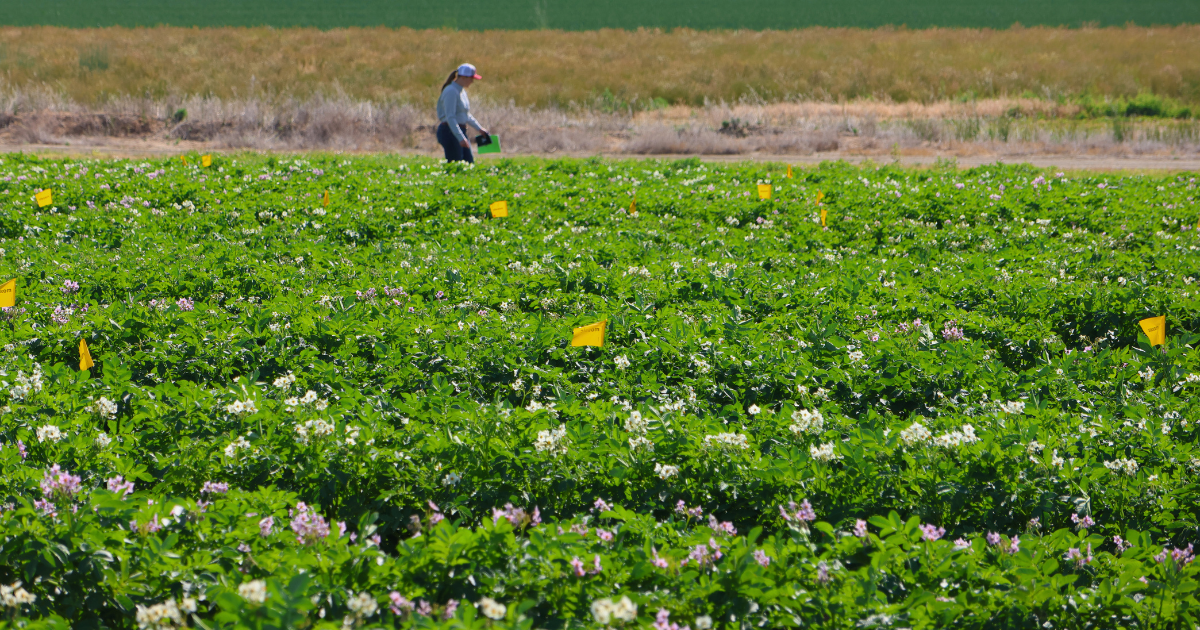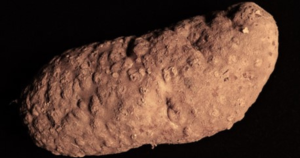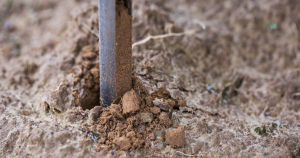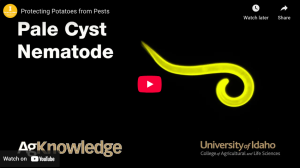First Idaho Field Cleared of Pale Cyst Nematode
For the first time since its discovery in 2006, the pale cyst nematode (Globodera pallida; PCN) has been successfully eradicated from a field in Idaho.
The USDA APHIS, in partnership with Idaho’s state department of agriculture and potato industry, announced that Bryan Searle’s 119-acre field in Bingham county was removed from PCN regulation on July 2, 2025.
“This is wonderful news for Idaho potato growers who are facing the devastating impacts of a PCN infestation,” says PAPAS Project Director Louise-Marie Dandurand, Ph.D., University of Idaho professor in Entomology, Plant Pathology and Nematology and director of the university’s PCN Project. “The PCN regulatory program is extremely stringent and it’s an incredible achievement to regain access to that land for potato production.”
PCN is an invasive, soil-dwelling plant parasitic nematode that feeds on the roots of potatoes. An internationally regulated pest with zero tolerance in the United States, it is very difficult to control because of its encysted eggs, and long-term ability to survive in soil. If left unchecked, PCN can reduce crop yields by 80 percent and costs the Idaho economy an estimated $30.38 million (McIntosh, et al. 2016).
The federally funded PCN regulatory program focuses on containing and eradicating the pest, preventing its spread and protecting trade markets. U.S. efforts have contained PCN to an 8.5-mile radius in southeast Idaho.
Searle has spent the past 19 years trying to eradicate PCN—cleaning and sanitizing equipment, applying nematicides, and restricting planting options. Having passed the rigorous testing requirements, Searle can now put his field back into potato production.
“We’ve been working diligently with Mr. Searle to combat PCN, and it’s been an incredible teamwork effort involving Mr. Searle, ISDA, APHIS, and my team at the University of Idaho to achieve this,” says Dandurand. “He is very well-informed and deserves a lot of credit for his dedication and diligence.”
Dandurand is hopeful that the PAPAS project will help to get more fields deregulated and back into potato production.
“Once we have more effective tools developed through the PAPAS project and other research initiatives, we will see more fields rapidly achieving the goal of being released from the PCN regulatory program,” Dandurand added.
PAPAS is a multistate transdisciplinary team of nematologists, plant pathologists, plant breeders, economists, computer scientists, and extension personnel from major potato producing states in the U.S. With support from potato industry leaders, PAPAS received a $6.8 million grant through the USDA National Institute of Food and Agriculture (NIFA) Specialty Crop Research Initiative for its project, Systems Approach to Controlling Nematodes in US Potato Production.
Goals of the PAPAS project include:
- Improved diagnostics and decision support for nematode management
- Development of potato varieties with nematode resistance through plant defense genes
- Development of novel chemistries for nematode management in potato production
- Engaging and educating potato growers, potato industry, and stakeholders
Related News:







